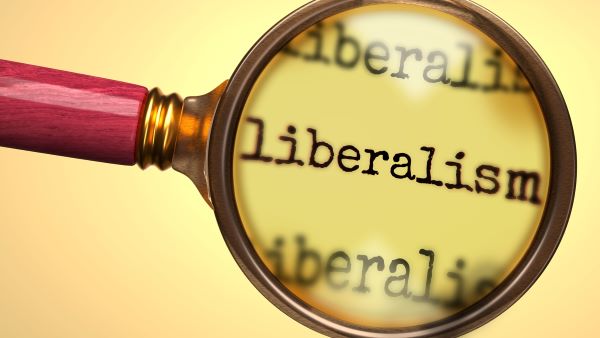Liberty Matters
Pareto and Classical Liberalism
 After having read the first round of comments by Mingardi, Wagner, and Candela, I would like to pick one point from each to briefly discuss further the relationship between Pareto's work and classical liberalism.
After having read the first round of comments by Mingardi, Wagner, and Candela, I would like to pick one point from each to briefly discuss further the relationship between Pareto's work and classical liberalism.Alberto pointed out Pareto's relevance for reading today's "rampant populism," whose leaders blatantly proclaim themselves the new face of politics that speaks for the "people" against the professional politicians. Pareto knew very well this phenomenon, which has old roots, especially within Italian political tradition, starting from the populares party in the Roman Republic. The quotation in Alberto's comment ("It is an illusion to believe that now stands, in front of the ruling class, the people; what stands in front of it is a new and future aristocracy, which leans on the people, and actually you can already see some marks of contrast between that new aristocracy and the rest of the people." [Pareto 1900, 218]) reveals that Pareto considered elitism as a general political principle able to explain the emergence of new groups of power. From Athens to Rome, within the French Jacobites as well as the Russian Bolsheviks and so forth, new elites get power when they manage to persuade the "people" to be their own natural leaders. According to Pareto, that persuasion is made possible by ideological justification when (political) passions take priority over rationality. (The same mechanism operates in religious belief.) Beliefs generate faith and illusions which generate fanatism: this is roughly what Pareto meant when he wrote that "it is not the function of theory to create beliefs." (Pareto 1916, §365)
How did Pareto combine this extreme form of political realism, often labeled cynicism, with classical liberalism? As Femia (2013) wrote, realism did not prevent Pareto from offering a basis for systemic change. Pareto insisted on two fundamental tools against pseudo-explanations: education and rationality. Which kind of education and which kind of rationality did he have in mind?
Pareto was not only a fervent liberal in economic matters; he was also a promoter of the importance of education on economic matters. This is an element of his thought that we haven't well highlighted yet. According to Pareto, a lack of education on economic matters leads to a huge empowerment of the political class and therefore to the decline of the nation, the elites being bound to fail at modernization.
This leads me to Rosolino's mention of a possible bi-directionality in Pareto's notion of derivation, which converges in a notion of liberty as "unintendedly embodied in liberal institutions, which in turn create derivations that reinforce liberal institutions." I must confess that this idea fascinates me, but I do not think that Pareto went in that direction. His political realism prevented him from being too optimistic about the destiny of liberalism and democracy. I think Pareto's liberalism goes much more in the direction explained by Dick: given that people would act differently in different environments, Pareto recognized that a free market is a better environment than a political arena because in market dynamics there is room for reasonable thinking. It is worth remembering what Pareto wrote to the well-known Italian mathematician Federigo Enriques: "sciences have not, and they must not have, any [political] party, they do not provide norms; they simply try to find uniformity of facts." (Pareto 1906)
This prompts a few words about the kind of rationality Pareto had in mind. I believe that his emphasis on the necessity to build up a model of human behavior that is able to include non-logical dynamics was his way of applying the notion of rationality that belonged to modern philosophy and upon which classical liberalism is grounded. Hence, while I second Dick Wagner's general interpretation, I find it hard to consider Pareto's notion of rationality compatible with Gigerenzer's notion of ecological rationality, unless we agree to consider ecological rationality, which is grounded in the complex interaction between "thinking" and "feeling," as the last development of modern rationality.
Copyright and Fair Use Statement
“Liberty Matters” is the copyright of Liberty Fund, Inc. This material is put on line to further the educational goals of Liberty Fund, Inc. These essays and responses may be quoted and otherwise used under “fair use” provisions for educational and academic purposes. To reprint these essays in course booklets requires the prior permission of Liberty Fund, Inc. Please contact oll@libertyfund.org if you have any questions.